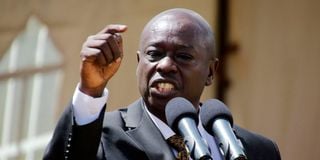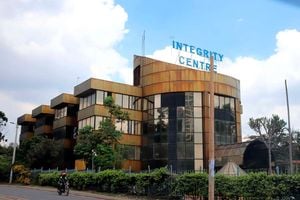DP Gachagua removal process an affront to democracy

Impeached Deputy President Rigathi Gachagua
On October 17, the Senate voted to impeach Deputy President Rigathi Gachagua on five out of 11 charges. Mr Gachagua, who was hospitalised during the proceedings, was unable to defend himself. The impeachment process, many believe, was orchestrated by President William Ruto to consolidate power and eliminate a potential rival. This perception is exacerbated by the swift nomination of Interior Cabinet Secretary Kithure Kindiki to succeed Mr Gachagua.
The Senate’s decision to proceed with the impeachment despite Mr Gachagua’s absence and health issues has compromised its integrity. What should have been a robust defence of constitutional governance became a mere formality, undermining the rule of law and eroding trust in democratic institutions.
The impeachment sets a dangerous precedent where political convenience supersedes the rule of law, potentially leading to authoritarian tendencies. It damages the foundation of Kenyan democracy and signals a decline in the nation’s jurisprudence.
Mr Gachagua’s removal is a stark reminder of the fragility of democratic institutions and the need for vigilance in protecting them.
Benedict Toroitich
To future generations,
I hope when historians sit to write about the first impeachment of a sitting Deputy President, you will not see it as a show of a maturing democracy but of how the Executive was controlling the Legislature. I hope videos of the public participation in the impeachment will surface to show you how most Kenyans said “kufa makanga kufa dereva”, meaning that they wanted both the DP and President gone.
I also hope that it is noted down for you how Parliament passed a Finance Bill that most Kenyans were against, eventually leading to the breaching of Parliament buildings for the first time in history. And finally, I hope the sentiments of Imenti Central MP Moses Kirima that he voted to impeach Mr Gachagua in the hope that Kithure Kindiki who hails from his region would be appointed to fill the position will be captured, and from that, you will understand that this was not history in the making, but State capture in action.
Jeff Mwendwa, Daystar University




